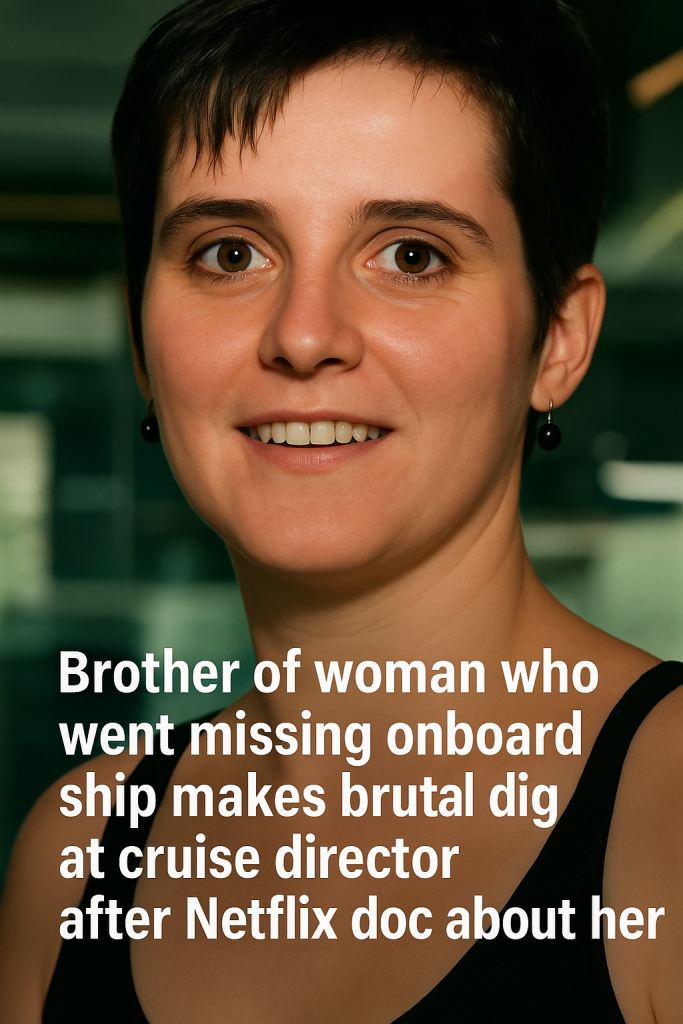The recent Netflix documentary chronicling the mysterious disappearance of a woman aboard a cruise ship has reignited intense emotions and fresh controversy. Most notably, her brother has publicly voiced a scathing critique of the ship’s cruise director, whose role in the tragic case has come under scrutiny.
In the documentary, which premiered earlier this year, viewers were taken through the perplexing events surrounding the woman’s disappearance on a luxury cruise. The series offered exclusive insights, interviews, and expert analysis, aiming to shed light on what many hope was the truth behind the baffling incident at sea. However, it is the reaction from the missing woman’s family, particularly her brother, that has stirred discussions on social media and in the cruise industry.
The brother’s blunt response came shortly after the documentary aired. He delivered a brutal dig at the cruise director, accusing the individual of negligence and criticized the way the ship’s staff allegedly managed — or mismanaged — the situation at the time of the disappearance. His comments reflect a broader frustration with what some family members and observers perceive as a lack of transparency and accountability from the cruise line and its personnel.
Reports indicate that the cruise director’s role during the voyage involved overseeing onboard activities and passenger interactions, which has led to questions about how the missing woman’s movements and safety were monitored. The brother’s statements suggest he believes the documentary exposed failings that were previously overlooked or minimized.
The family’s reaction highlights a growing tension between cruise operators and the public, especially in cases where passengers go missing under suspicious circumstances. Families of missing persons often demand thorough investigations and clearer communication from the companies involved — demands that appear echoed in this recent public exchange.
Meanwhile, the cruise company has maintained a respectful silence, refraining from detailed commentary while the documentary circulates and the investigation continues. Industry experts note that cases like this typically involve complex legal and procedural challenges that can delay conclusive findings.
Many viewers and commentators who followed the documentary have expressed sympathy for the family’s ordeal, emphasizing the emotional toll the disappearance and subsequent media attention have caused. Some have also called for cruise lines to improve passenger safety protocols and crisis response efforts to prevent such tragedies in the future.
As this story develops, the brother’s outspoken criticism serves as a stark reminder of the profound personal impact behind headline-making disappearances at sea. His candid remarks may also prompt further examination within the cruise industry about accountability and the welfare of its passengers.
For those interested in the full story, the documentary remains available on Netflix and continues to spark debate about maritime safety, responsibility, and the pursuit of justice for missing travelers.



